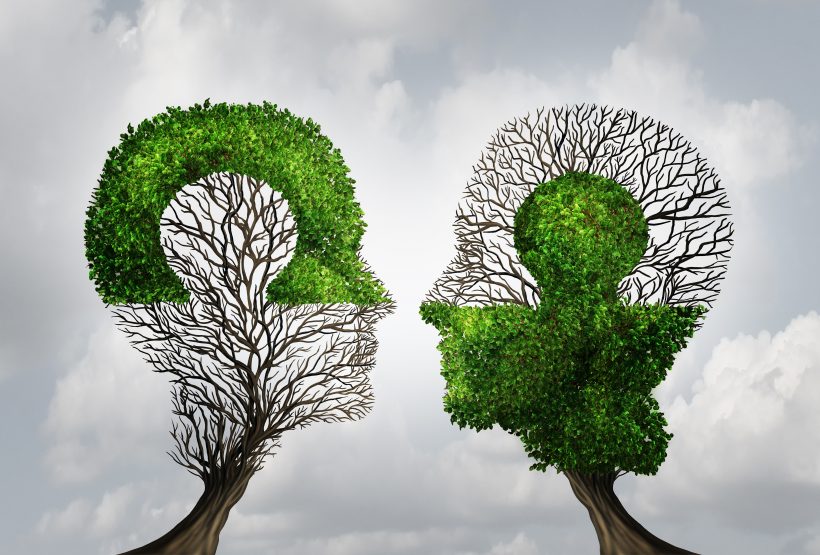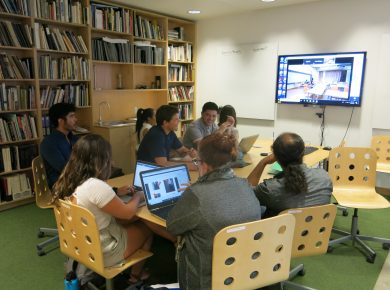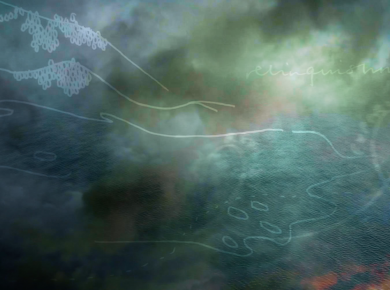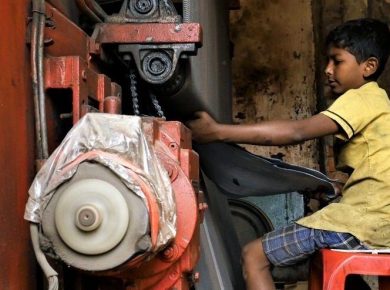In his latest book, 21 Lessons for the 21st Century, Israeli historian Yuval Noah Harari dedicates a chapter to meditation. In it, he writes about going on a 10-day Vipassana mediation course. For the then 24-year-old, the experience was profound: “I learned more about myself and about humans in general by observing my sensations than in my whole life up to that point.” Today, Harari meditates two hours a day, every day. It’s a time when he can “actually observe reality as it is … Without the focus and clarity provided by this practice, I could not have written [my books].”
His words would come as no surprise to Christiana Figueres. The former UN climate chief and one of the architects of the famously knotty Paris Climate Agreement has credited her sparky blend of wisdom and positivity to Zen Buddhist monk Thich Nhat Hanh. “I don’t think I would have had the inner stamina, the depth of optimism, the depth of commitment, the depth of inspiration if I had not been accompanied by the teachings of Thich Nhat Hanh,” she once said. Thay, as he is called, is regularly invited to speak at organisations such as the World Bank and Google.
Philosophers, diplomats, bankers, techies: how times have changed. Once regarded as the preserve of hippies and hermits, mindfulness has become a key tool for those working to restore the planet. Sustainability is complex and urgent; at its core, it speaks about the survival of the human race on Earth. And, as such, it requires the kind of mental strength, clarity and, as Figueres points out, optimism that we have simply never needed before.
What gives mindfulness the qualities we need right now? “There’s a nice analogy with the sea,” reflects Martin Wright, a consultant who has been meditating, writing, advising and speaking on environmental solutions for the past 25 years and former editor-in-chief of Green Futures. “You can imagine the sea as really choppy. That’s often how we feel about what’s going on in our lives. But we forget the ocean is 50,000 foot deep and most of it is much stiller and calmer. Meditation helps us remember that we’re the whole ocean.”
This has practical implications in every way and, in particular, in personal choices. “[The choppiness comes from things like] worrying about money and status,” Wright continues.”And part of what drives unsustainability is the frantic effort to deal with those anxieties, which is often tied to material consumption. Being aware that stuff is just the choppy surface and not very important is a nice reminder we don’t have to pursue life in that way to be happy. We already have all we need.”
It was while completing an MSc in Sustainability and Adaptation Planning at the Centre of Alternative Technology (CAT) that researcher Stuart Anderson noticed a shared interest in mindfulness among fellow students. “I was surrounded by people there for the same reason: to understand the problems better and to find solutions,” he says. “People were learning to approach things in the same way, which was to raise their awareness to make those changes. Mindfulness seemed to point to the strategies everyone was using.”
Anderson uses the definition of mindfulness proposed by founder of MBSR (mindfulness-based stress reduction) Jon Kabat-Zinn: “mindfulness is paying attention on purpose in the present and non-judgementally to the unfolding of experience moment by moment.” Focus on the present, posit followers, and, according to Christine Wamsler, Professor of Sustainability Science at Lund University, we can become “more aware of social justice and injustice … and more sensitive to context.” Mindfulness can also help us “cultivate compassion and intrinsic moral values … and consider the consequences of unquestioned structures and power relations.”
In setting aside the self, mindfulness can also help communicate sustainability to those not yet on board. “We’re not going to change things by being preachy bastards all the time,” laughs Wright. “When we get really earnest, it gets people’s backs up. We don’t win this by proving we’re right. We win it by persuading – and if you want to persuade someone, you let them think it was their idea, not yours. Meditation takes away your sense of self-importance and that can actually make you more influential.”
Finally, mindfulness offers context – and, through context, relief. Jo Anne McArthur is founder of the We Animals photographic archive, documenting the exploitative relationships between human and non-human animals. As part of her frontline investigative work, she puts herself in places which challenge the very notion of humanity as a rational force, in particular, factory farming: “When I’m feeling particularly turbulent or hopeless, I use mindfulness to return to a calm core. Mindfulness also helps me to take a longer vision of my work, to remind me of the big picture, and of my place on this planet. That helps me catch my breath.”






